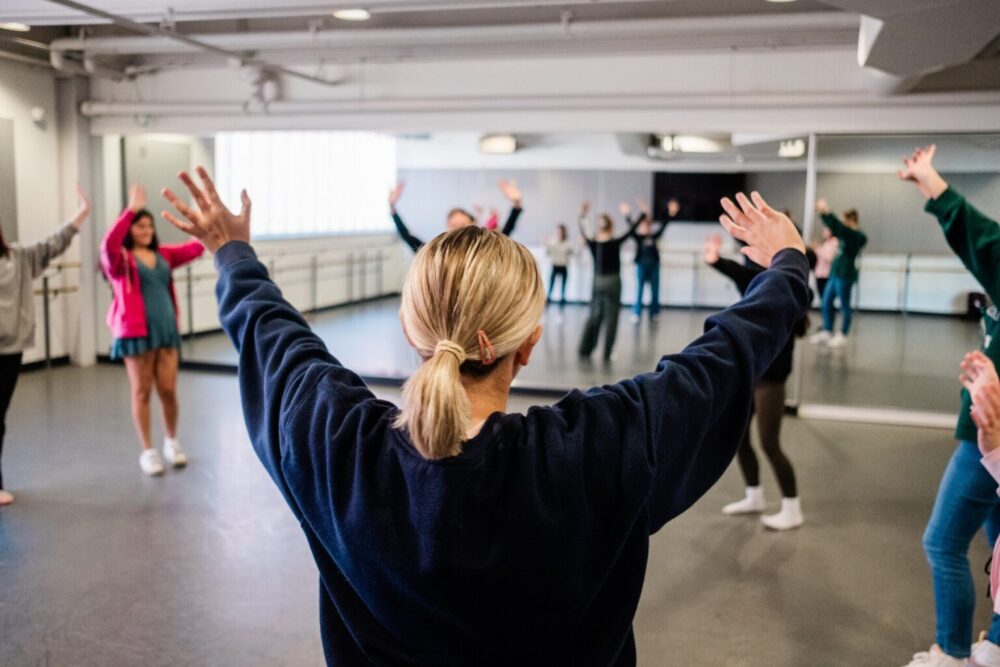How will Pennsylvania solve its critical teacher shortage?
The state saw its largest single-year loss of teachers in 2023 and these losses continue. But while we know that finding new ways to attract and empower future educators is crucial, we also know that filling classrooms with well-trained, mission-driven teachers isn’t easy.
It’s a challenge that requires innovative problem-solving and plenty of creative collaboration.
With that in mind, Remake Learning has awarded new Moonshot Grants to three pilot programs — each leveraging the power of collaboration, creative thinking and new approaches to apprenticeship in order to help people become certified as specialized educators.
These future educators include everyone from gifted dancers and eager high schoolers to experienced welders. Their paths have been different. But all are gaining skills to become effective teachers in Pennsylvania’s classrooms.
“Teaching is an adaptive practice, and the pathways that educators can take to become certified in addressing special needs should be adaptive, as well,” says Tyler Samstag, executive director at Remake Learning.
“These Moonshot Grant projects prioritize practical qualifications, direct field experience, and collaborative mentorship, which will help teachers to better meet the diverse needs of students in terms of their mental health, physical needs, and desire for creative expression,” Samstag says.
Here are the programs that are making this progress happen:
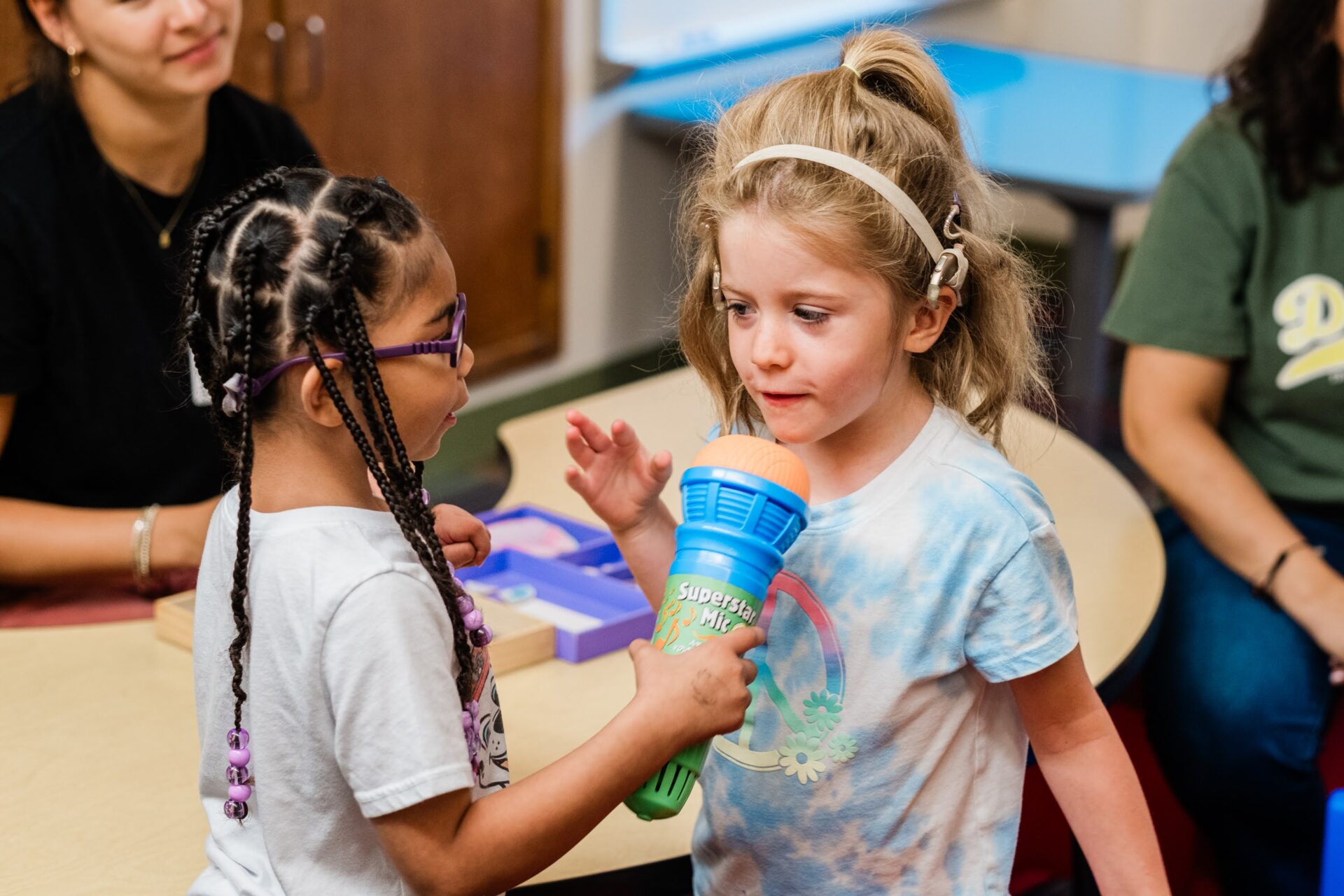 Photo by Ben Filio for Remake Learning.
Photo by Ben Filio for Remake Learning.
Faster Training for Teachers of the Deaf
For nearly a decade, Lindsay Diethorn worked as an audiologist at DePaul School for Hearing and Speech. She loved working with toddlers who were just beginning to navigate the world of cochlear implants and hearing aids, as they slowly discovered spoken language. But as each year passed, Diethorn remembers, “I would go home every day and tell my husband, ‘I should have been a teacher.’”
But becoming a certified Teacher of the Deaf is difficult — even as the need for these teachers continues to grow.
“Over the last 12 years, all of the programs in southwestern Pa. have been shuttered,” says DePaul’s executive director, Dr. Ruth Auld.
Individual courses and programs exist around the country, but it’s complicated for a student to enroll separately at multiple universities and then try to collect all that learning into a state certification.
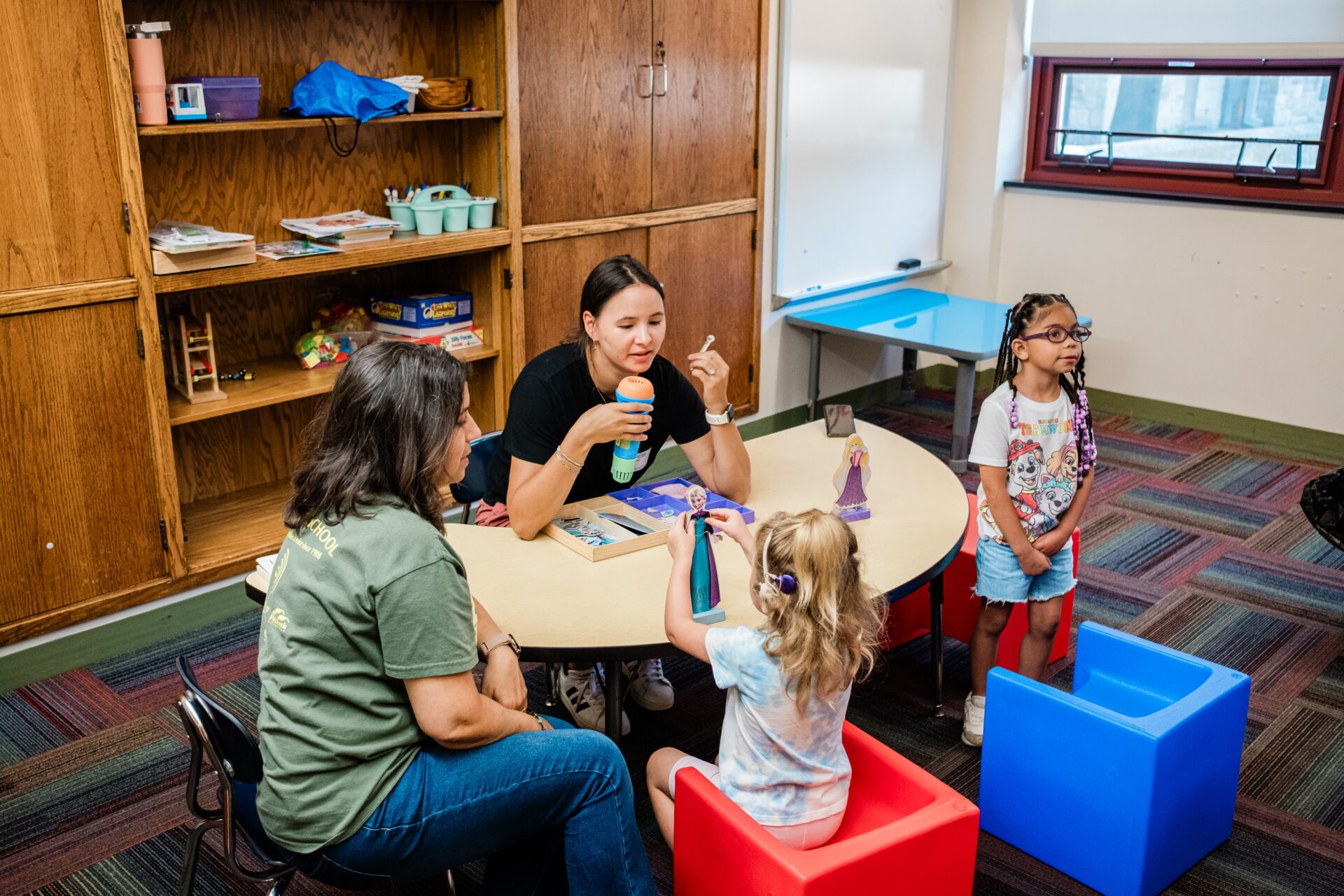 Photo by Ben Filio for Remake Learning.
Photo by Ben Filio for Remake Learning.
So Auld and her team began brainstorming: What if we worked with multiple universities to waive registration fees and partner to let students take a carefully constructed succession of courses leading to full certification?
“We did this because there was no other pathway,” Auld says. “It was our responsibility to solve our problem, and so we just kept talking and turning over ideas.”
Today, Diethorn is one of three students pursuing a Masters’ degree in special education as a registered apprenticeship to become Teachers of the Deaf through De Paul’s innovative program.
These future teachers — Diethorn and her classmates Mandy Mulligan and Lucca Spence — are taking online courses at four universities, including Robert Morris and La Roche, while “getting university credit at the graduate level for being an apprentice,” Auld says.
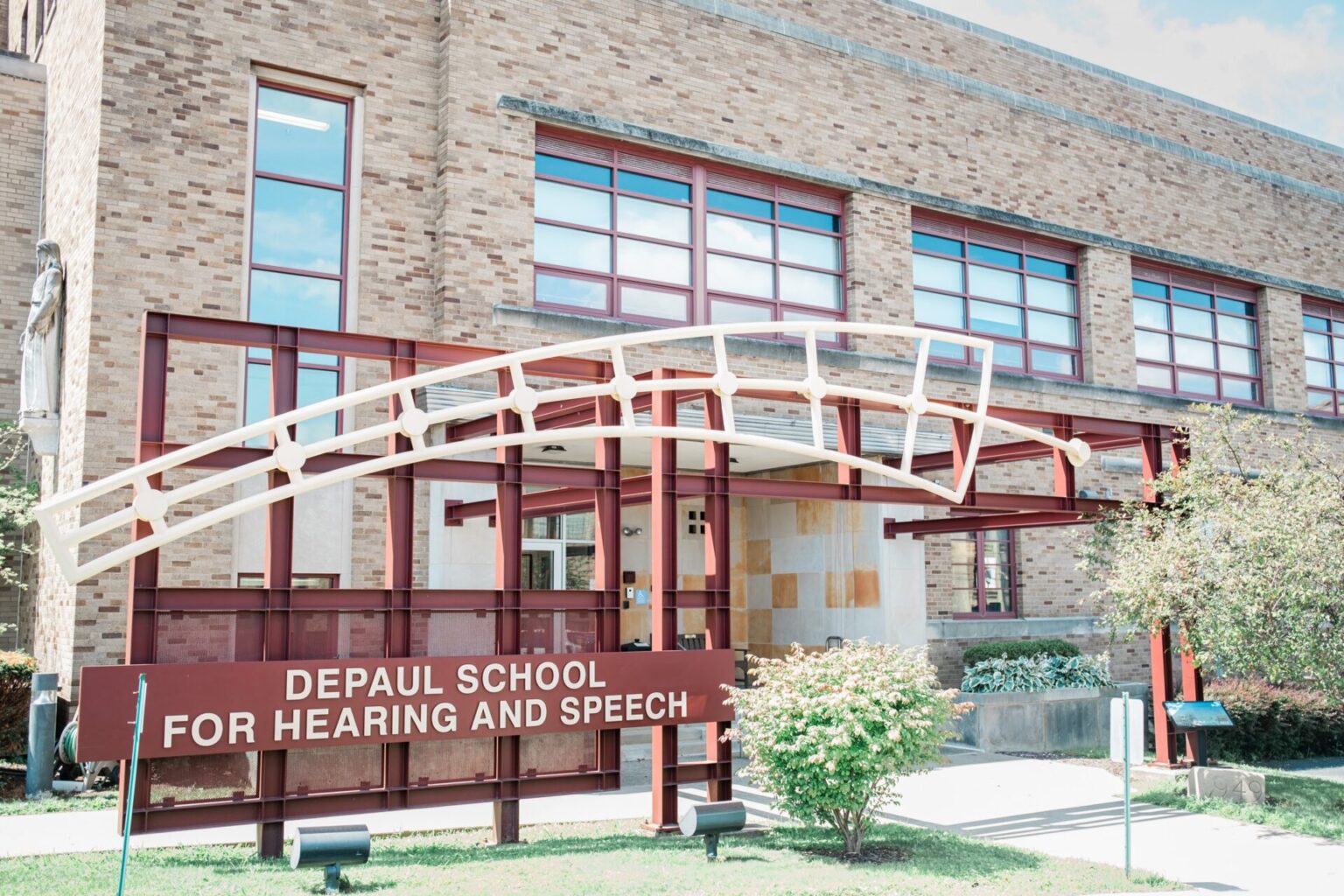 Photo by Ben Filio for Remake Learning.
Photo by Ben Filio for Remake Learning.
That hands-on experience is key, according to the program’s mentors — experienced De Paul teachers Kathy McDermott, Natalie Buchholz, and Alicia DiBenedetto.
Rather than spending months only learning theoretically about teaching, this new apprenticeship program “gives them the chance to listen, learn and then apply things immediately,” says Buchholz.
Spence agrees: After six months of “learning by doing,” he says, “I’ve felt myself grow incredibly as a teacher.”
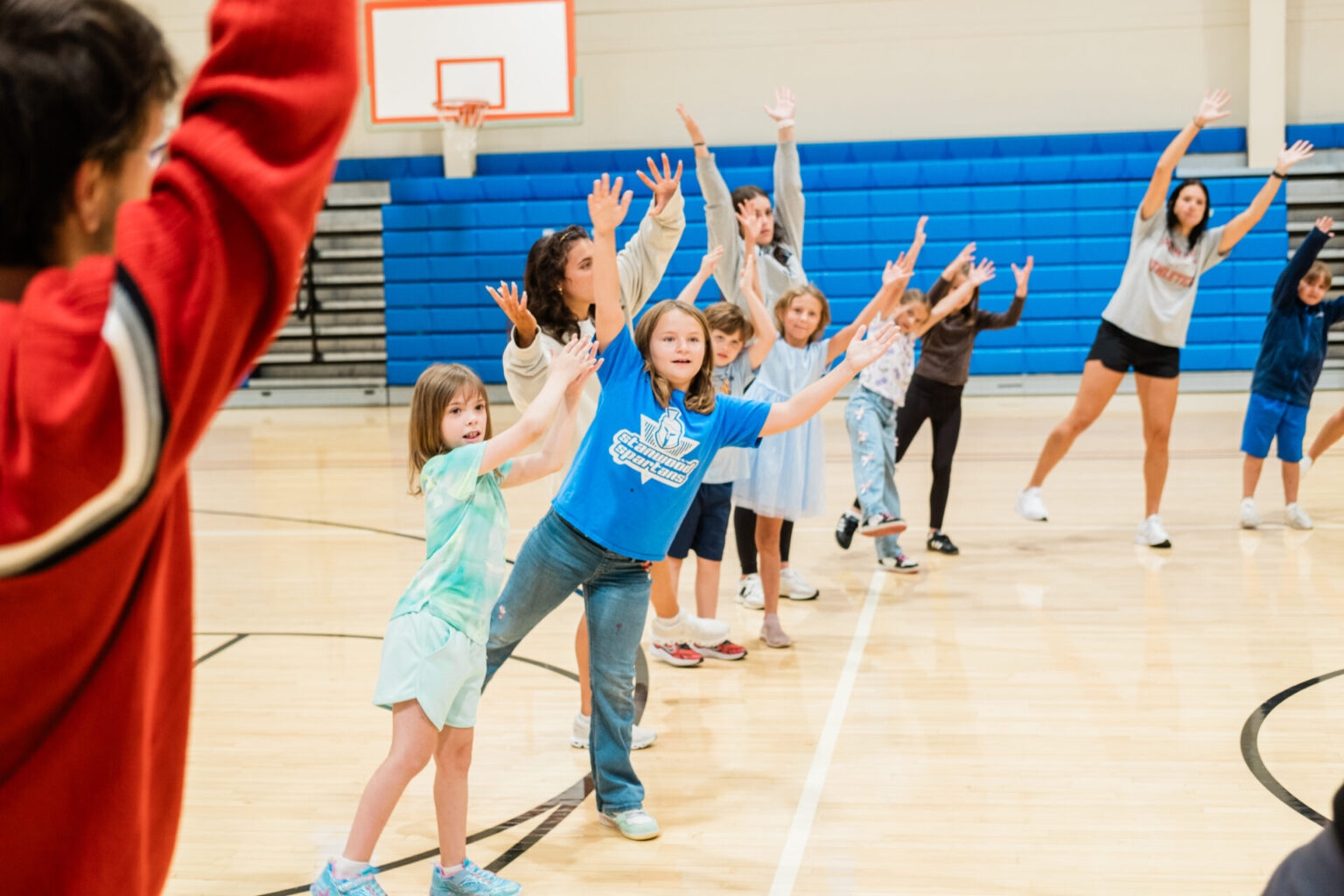 Pre-service teachers work with elementary students in this photo by Ben Filio for Remake Learning.
Pre-service teachers work with elementary students in this photo by Ben Filio for Remake Learning.
Making Dance a Cornerstone of Active Learning
Pittsburgh’s Attack Theatre has spent three decades sharing the principles of “embodied learning” — using movement and dance as a tool to help teachers more effectively deliver curriculum.
Through their new Moonshot-grant funded project, “we want that tool to be shared,” says dancer Kaitlin Dann, who serves as artistic and administrative associate at Attack Theatre.
“We’ve been doing this for so long, and we have these amazing workshops and residencies, and we do professional development,” Dann says. “But we’re thinking, how can this become even more readily accessible?”
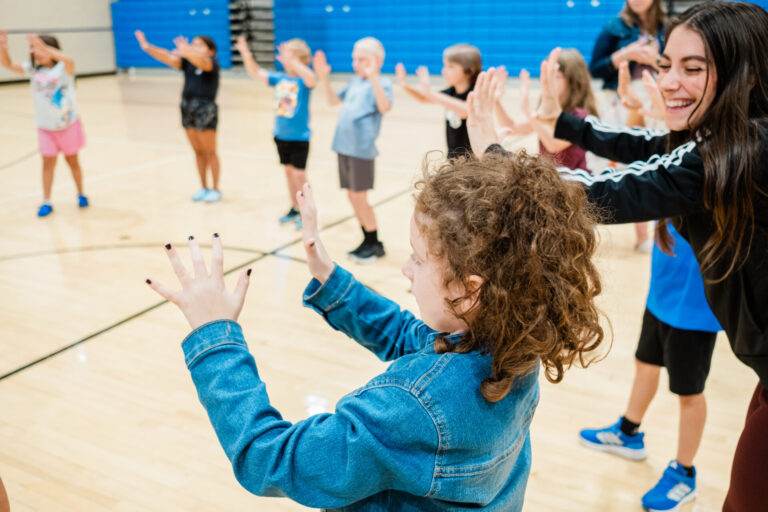 Photo by Ben Filio for Remake Learning.
Photo by Ben Filio for Remake Learning.
Dance, she says, is “something you can use as a conduit to deliver information” while also building connection and cooperation between students and teachers.
“We get to share this with dancers who maybe didn’t even know that they could use dance and movement this way,” Dann says, “And then there’s people who have never moved before in their life, who have no idea how to make a dance, and we’re showing that it’s much more accessible than they could ever imagine.”
To accomplish this, Dann and Attack Theatre’s arts education manager, Brit Tague, are working with Seton Hill University to develop a new talent pipeline where people can earn certification in PreK-12 dance education.
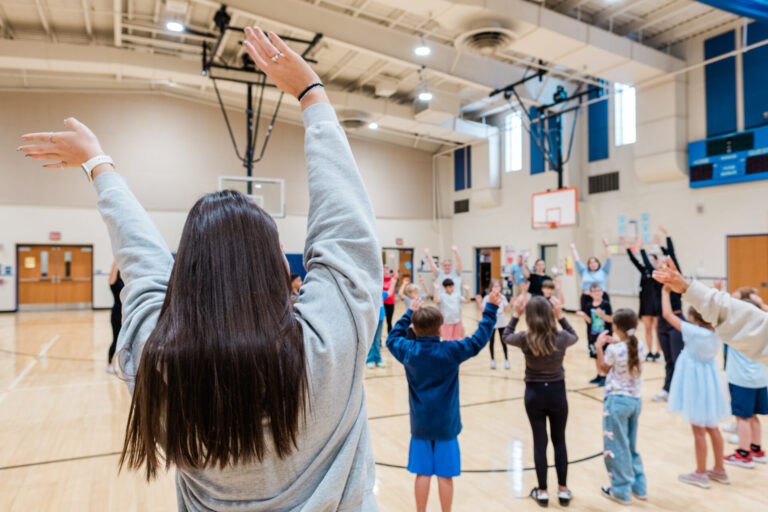 Photo by Ben Filio for Remake Learning.
Photo by Ben Filio for Remake Learning.
They are also partnering with Hempfield Area School District, which has created a pipeline giving high-schoolers apprenticeship training and the chance to earn college credits toward an education degree through the Central Westmoreland Career and Technology Center.
This multipronged effort will help high schoolers begin their training as future teachers who understand the power of dance and movement, while also giving hands-on experience to university dance majors who are committed to working as educators.
During a pilot program this fall, Hempfield Area high schoolers and Seton Hill dance majors will learn from the Attack Theatre team about using dance and movement while working as student teachers at Hempfield Area’s Stanwood Elementary School.
“We’re creating this one-of-a-kind residency, highlighting our best attributes that we could bring to the classroom,” Tague says. “It’s really lovely to see it sort of blossoming right in front of us.”
Through a separate grant, the team is also creating a digital library of training for future teachers to use.
“People believe dance is something that’s inaccessible. It’s on stage. It’s far away,” Dann says. “We are challenging the notion that dance is just for some people, and it’s just for some bodies.”
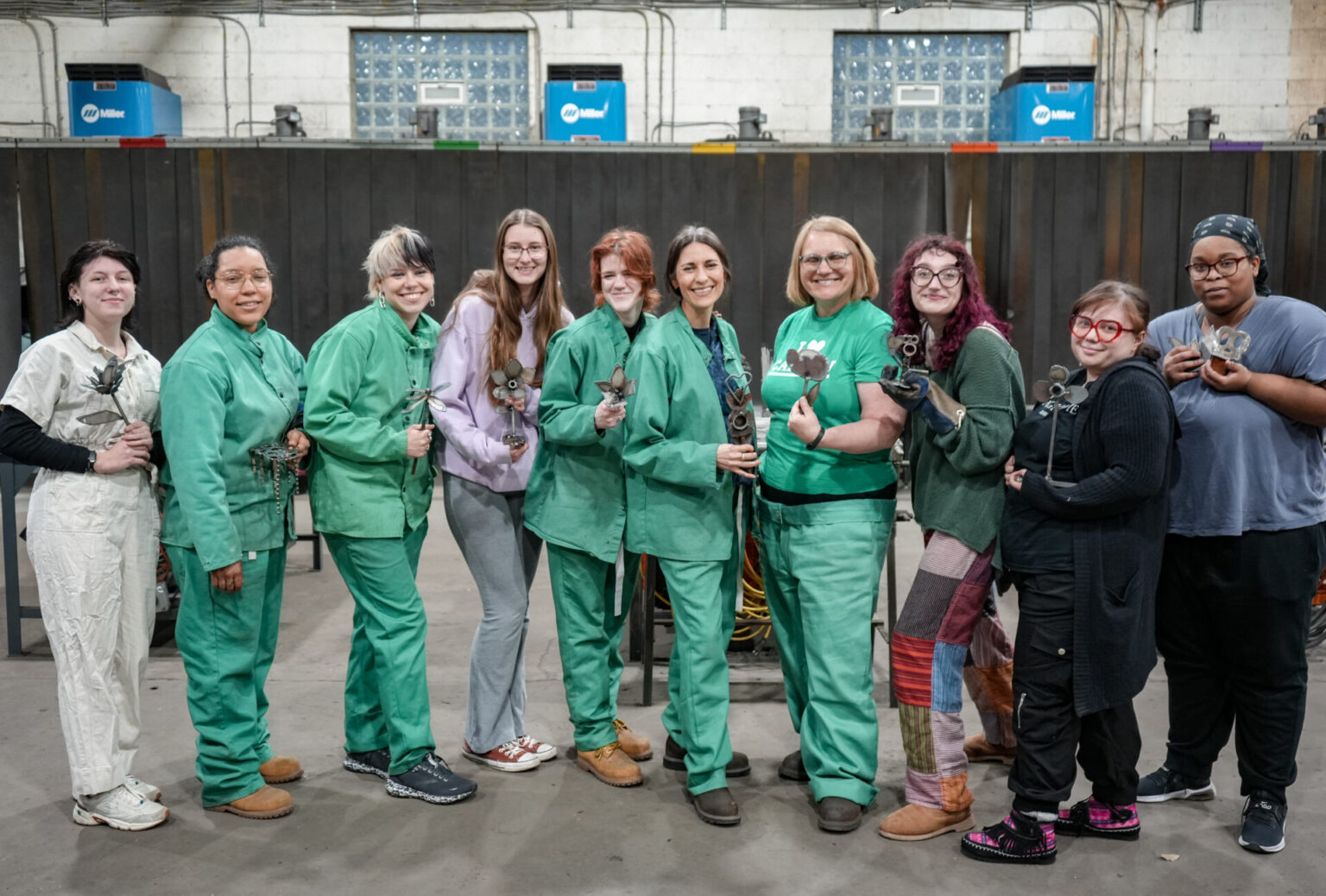 Photo courtesy of Carlow University.
Photo courtesy of Carlow University.
Identifying and Addressing Student Trauma, While Supporting Trade Education
Many of today’s students are dealing with levels of stress and trauma that interfere with learning.
The instructors at Industrial Arts Workshop (IAW), who teach skills like welding to Pittsburgh Public School students, see it regularly. And the art education majors at Carlow University encounter student stress and trauma as soon as they begin working in classrooms.
What if both of these groups could become skilled at teaching high school students through trauma-informed practices?
Through their Moonshot grant-funded project, Carlow is partnering with IAW to develop experiential learning and apprenticeship opportunities for aspiring arts educators and for trades educators. Through this program, both groups can learn from one another, while boosting their readiness to identify and address student trauma.
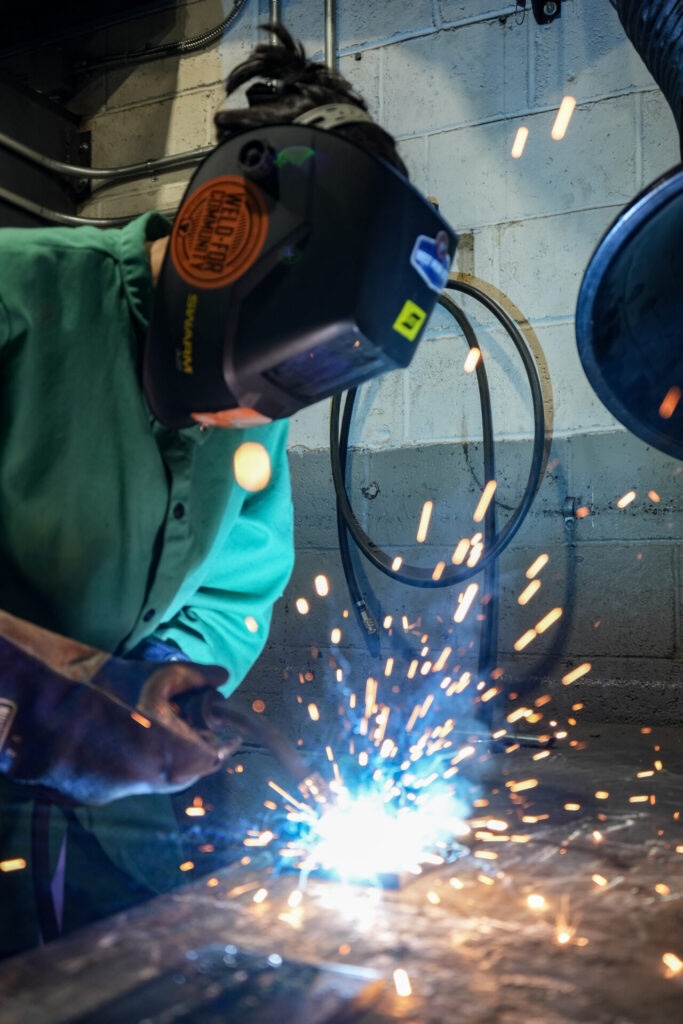 Photo courtesy of Carlow University.
Photo courtesy of Carlow University.
The idea grew from conversations between Carlow’s Art Education Program director, Sarah Zeffiro, and Dr. Rachel Griffo, director of grants and special projects at the university’s Department of Education and Liberal Studies.
Both were interested in “considering approaches to pedagogy that make space for time to learn and for retrieval practice, and not overloading students,” Griffo says. “We just kept talking about how we’ve wanted to integrate wellness into the teacher training for such a long time. There hasn’t really been an opportunity to allow us to do that.”
Research has explored the learning benefits of giving students space for breathing and reflection, Griffo says, but “I don’t know that there is research specifically in teacher education spaces.”
This work also breaks new ground in that “it offers experiential learning for art education students and IAW staff,” Griffo says. These groups are “learning from each other on both sides.”
As they receive training in effective lesson planning and teaching, the group is also getting a range of professional development and personalized training.
Last spring, they worked with Tyler Butler from Pittsburgh Tub Club to learn calming breathwork practices as a tool to share with students. And in the fall, instructors from Awaken Pittsburgh will be offering training to the group.
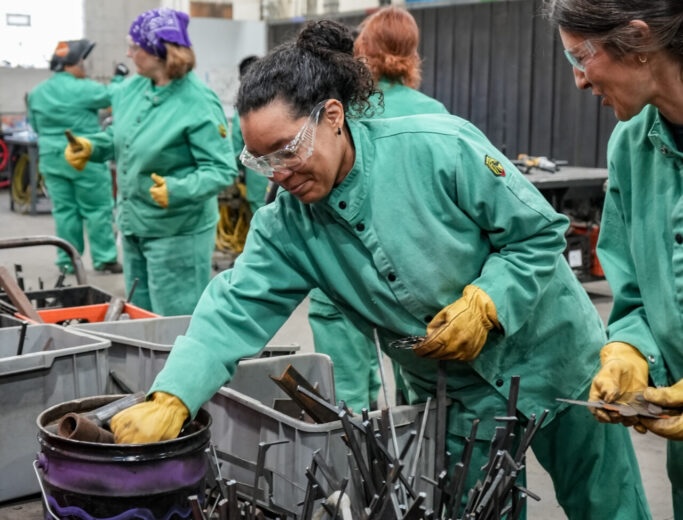 Photo courtesy of Carlow University.
Photo courtesy of Carlow University.
“We’re hoping that the results of this project will provide a playbook of teaching practices that we can share that can help students in industrial trade spaces and also in traditional spaces,” Griffo says.
“This Moonshot Grant just demonstrates one of the ways that Carlow Education is committed to supporting teacher certification pathways,” she says, “but in a really bold and creative way, because we’ve been allowed to explore these new possibilities.”
The team is also looking to build further partnerships.
“We don’t want this to just be a one-time thing. … How can this evolve, and how can we continue to partner with community organizations?” says Griffo. “There’s a lot of learning that can happen through partnerships.”
De Paul’s Auld and Attack Theatre’s Tague and Dann all echo that sentiment.
If you see a challenge that needs tackling in the world of teaching and learning, Auld says, find strong partners and “keep talking until you find what will work. And then work it out together, because we are stronger together.”
In photo at top of story, pre-service teachers practice dance integration. Photo by Ben Filio for Remake Learning.

